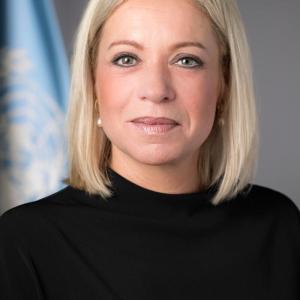Statement of United Nations Special Coordinator for Lebanon Jeanine Hennis-Plasschaert
25 October 2024
- Beirut, 25 October 2024: With each day that passes, the deadly cycle of violence in Lebanon expands, leaving ever more devastation and suffering in its wake.
Lebanon is now facing a humanitarian crisis of catastrophic proportions, with mounting civilian casualties, mass displacement and extensive destruction of civilian infrastructure across the country.
First responders heeding the call to help, including healthcare personnel and paramedics, have also been hard hit. The rise in the number of attacks impacting healthcare facilities and personnel is deeply alarming.
Since October last year, WHO has verified 53 attacks on healthcare facilities, resulting in 99 deaths and 82 injuries among healthcare staff. Eight hospitals across Lebanon have been fully evacuated, with seven others partially evacuated due to damages from or proximity to areas of bombardment. As a result, Lebanon’s hospital bed capacity in conflict-affected areas has dramatically reduced, increasing the strain, in turn, on hospitals in other areas. Another 27 attacks have targeted ambulances used by first responders. Nearly half of all primary health centres in affected areas have closed.
Earlier this week, an Israeli strike near the entrance of Rafik Hariri University Hospital – Lebanon’s largest public hospital – killed 18 people, including four children and four healthcare staff, with 60 others injured. Another hospital in the southern suburbs of Beirut was evacuated amid widespread panic following allegations made about the use of its premises.
The impact on the healthcare sector coincides with exponentially growing humanitarian needs, especially among those who are displaced. With poor sanitation and crowded conditions in collective shelters, the risk of disease outbreaks is real. Already, Lebanon has recorded its first case of cholera.
No effort should be spared to shield hospitals, protected unequivocally under international humanitarian law, from harm. Every strike that impacts the healthcare sector, or puts yet another hospital out of commission, compounds the burden on a system already struggling to respond to a rising caseload. Healthcare workers and first responders must be protected at all times.
We have also seen recent attacks targeting the media. When journalists, protected under international humanitarian law, are targeted, so too are our fundamental rights to the freedom of information and expression.
All actors in conflict must uphold their obligations under international humanitarian law. Even wars have rules.


